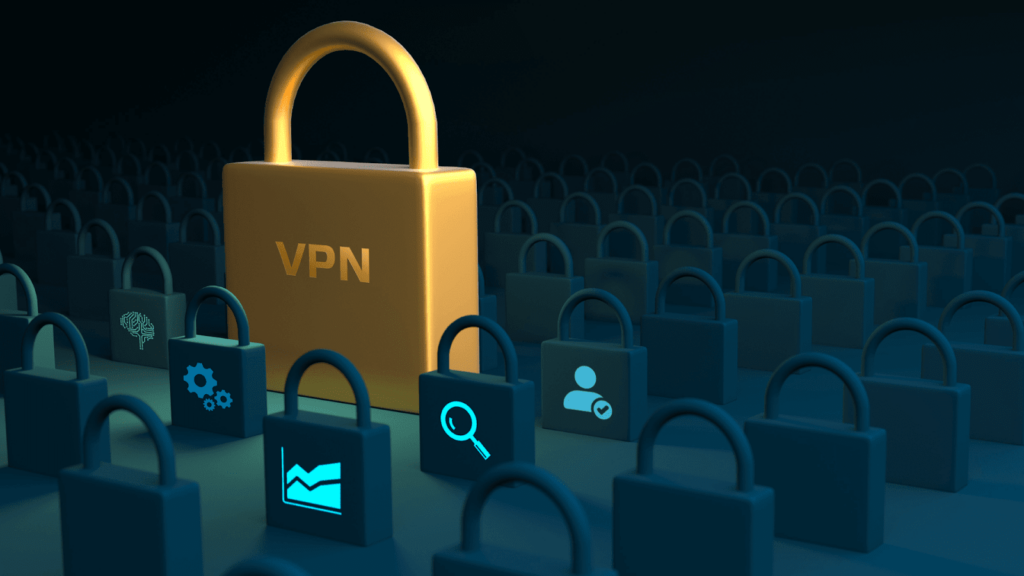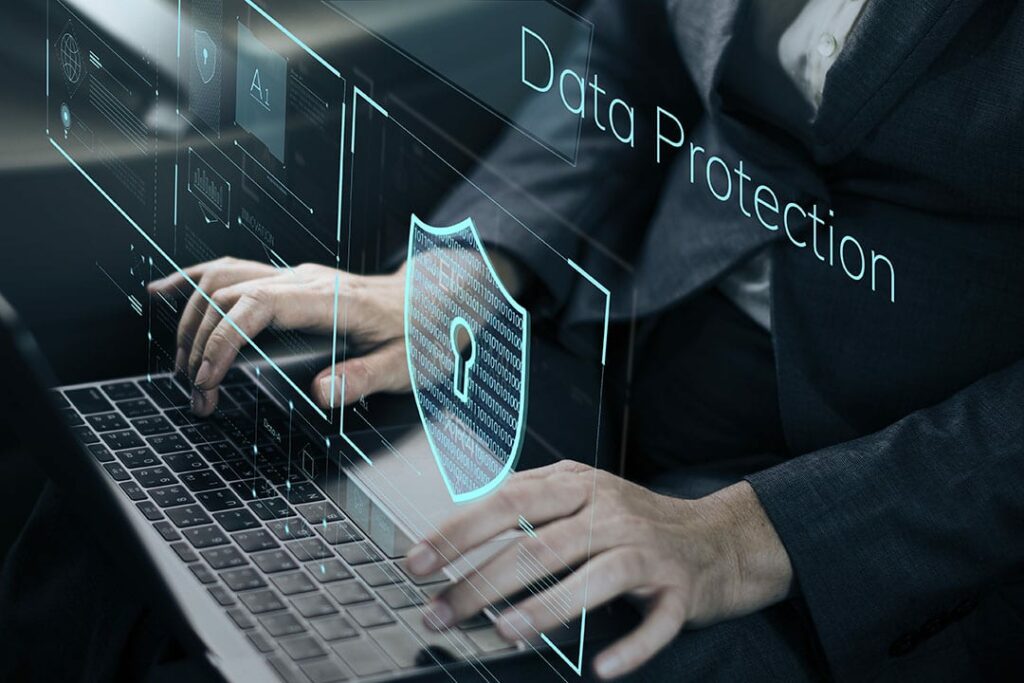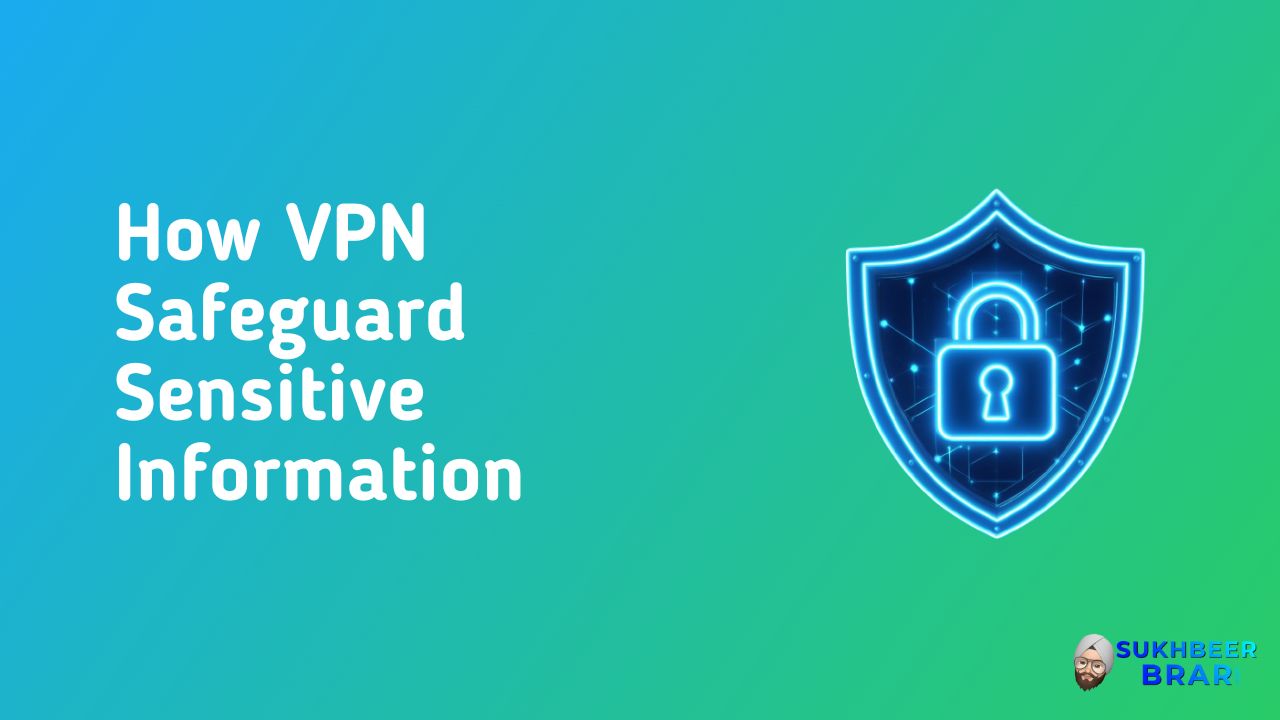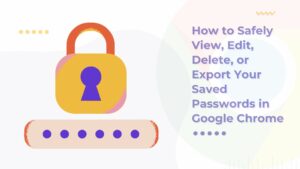You can use a virtual private network (VPN) as an Internet security service to access the Internet as if you are connected to a private network. VPNs create a secure connection over unsecured internet infrastructure using encryption.
VPNs protect corporate data and enable the management of user access to that data. As you interact with apps and web properties over the internet, VPNs safeguard your data and can hide specific resources. They are commonly used for access control, although other identity and access management (IAM) solutions can also assist in managing user access.

VPN and Financial Data Protection
Encryption scrambles data to ensure that only authorized parties can understand it. It alters readable data, making it appear random to anyone intercepting it, including attackers. Encryption acts as a “secret code.”
A VPN establishes encrypted connections between devices, often using IPsec or SSL/TLS encryption protocols. Every device connected to the VPN creates encryption keys, which encode and decode all information transmitted between them. This process may slightly slow network traffic due to added latency.
To safeguard Information, VPN apps use different encryption protocols. The stronger the encryption, the higher the latency due to the VPN. However, the difference is not so significant as to sacrifice security. The best solution when using a VPN for Mac or any other device is to choose the strongest encryption protocols. Before downloading a VPN for a PC, it’s worth checking the available encryption options for protecting customer data. If you look at VeePN, it is AES-256, which is used by the military and in banking infrastructure. Currently, VeePN encryption is almost impossible to crack; it would require many supercomputers and decades.
The encryption effect is that VPN connections remain private even when stretching through public Internet infrastructure. Consider a scenario where Alice works from home and connects to her company’s VPN to access a database stored on a server 100 miles away. Let’s say all her requests and the database’s responses travel through an intermediate Internet exchange point (IXP). Now, let’s assume a criminal secretly infiltrated this IXP, monitoring all data passing through, akin to tapping a phone line. Despite this, Alice’s data remains secure thanks to the VPN. The criminal can only see the encrypted version of the data.
Secure Remote Access
Most businesses have reduced their onsite operations to comply with social distancing requirements. To ensure secure network access for employees working from home, a VPN is crucial. Remote access increases vulnerability to hacking, but a VPN enables a secure connection to your company network, even when using public WiFi. Additionally, a VPN allows you to work from anywhere in the world, bypassing geographical restrictions. In fact, even one free Mozilla VPN is enough to open any geo-restricted website. For seamless integration and comprehensive support, financial IT services can assist in ensuring the security and productivity of your operations.
Access Control

You can imagine two servers in Acme Co.’s office building: Server A and Server B. Acme Co. doesn’t use WiFi, so all devices must use Ethernet cables for network access. Server A is physically connected via cables and routers to a network of devices, including desktop computers and the office printer.
If you are not physically connected to Server A’s network, you won’t be able to connect with Server A, and the same applies to Server B. For example, if you want to print a document stored on Server A through the office printer, you must plug your desktop computer into the correct network before accessing Server A and the printer. The same goes for retrieving a document from Server B; you need to plug into that network as well.
VPNs function similarly, except they create a virtual network instead of physical connections. Just as you cannot connect to Server A without being plugged into that network, a computer cannot access a resource protected behind a VPN unless it connects to that specific VPN. If Acme Co. used WiFi and VPNs instead of physical cables and routers, you would have to log in to VPN A to connect to Server A. Similarly, you would need to connect to VPN B to access Server B.
Many companies utilize VPNs for access control, meaning they control which users have access to specific resources. The company establishes multiple VPNs, each connecting to different internal resources. By assigning users to these VPNs, they can allocate different levels of data access to different users.
Protects Against Cybersecurity Threats
Cyber attacks are rapidly increasing, presenting a daily challenge for businesses. Neglecting cybersecurity can lead to significant financial losses. Prioritizing security is crucial for financial institutions due to the sensitivity of their operations.
A VPN protects you against phishing attempts by blocking emails that aim to steal your sensitive information. It prevents any malware software from transmitting information to its servers, effectively disabling its operations.
Conclusion
Using a VPN for online banking is crucial for managing your finances. It keeps your confidential financial information secure, providing an additional layer of security. While nothing can be 100% foolproof, a VPN acts as a reliable assistant by encrypting your data and masking your identity online.
Remember, online banking is convenient but comes with risks. By using a reliable VPN service, you actively take a step towards protecting your financial transactions and personal data. Whether you’re enjoying a cup of coffee in a shopping center or lounging at home in your pajamas, a VPN ensures that your banking adventures remain a secret between you, your financial institution, and your cozy internet zone.



